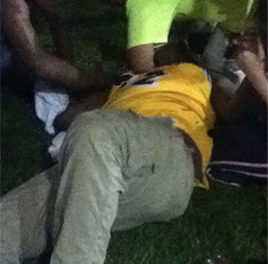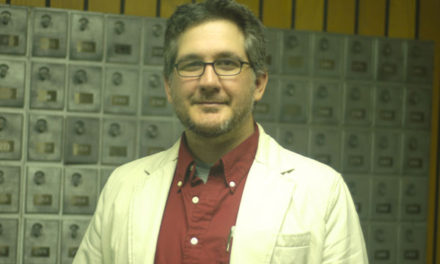By Whetstone Staff
Who should be permitted to marry and who should hold the right to bear arms were the two most-proposed amendments to the U.S. Constitution suggested by Wesley College students and staff during Constitution Day at the college in mid-September.
On Sept. 17, the Wesley College community was invited by Dr. Tony Armstrong and Professor Victor Greto of the Political Science Department to propose amendments to the Constitution of the United States on the 222nd anniversary of its signing.
Most did not sign their suggested amendments.
“Marriage is not restricted by gender,†one wrote. “Anyone should be allowed to marry anyone, regardless of sexual orientation,†said another. “Marriage should not be determined due to race, gender or age,†said a third.
Altogether, seven proposed amendments advocated marriage without restrictions.
The next most proposed amendment, three, played counterpoint to the Second Amendment to the Constitution concerning the right to bear arms.
“The right to bear arms is a privilege to be regulated according to the legitimate concerns of order and security,†suggested Armstrong.
“A well-regulated militia, being completely unnecessary, the right to bear arms is hereby repealed,†wrote another, referring to the famous first clause of the Second Amendment.
The final proposal was more to the point: “The ordinary citizen should not have the right to bear arms.â€
A little more than two dozen amendments were proposed. A table with a copy of the Constitution had been set up in the lobby of College Center just before, during and soon after the lunch hour.
Many students and staff simply walked by the table after squinting at the Constitution, cracking smiles and shaking their heads. Others stopped and engaged the professors.
Armstrong said he was pleased with the turnout
“The point of Constitution Day is to raise awareness about the importance of the Constitution, how it establishes the rule of law rather than the rule of men,†he said. “I’m not sure if the do-it-yourself Constitutional Convention in the lobby accomplished this, but a good number of students seem to have participated. “
There also were contrasting proposed amendments.
“All death penalties are to be abolished,†wrote one student, while another wrote, “The death penalty should be faster and cheaper. We should move to a gun and a bullet.â€
Two amendments proposed the legalization of marijuana, one for medical reasons, and the other simply said, “Legalize marijuana.â€
Some were more detailed than others, and typed.
“The first article of the Constitution is further amended to stipulate that, as Congress shall make no law respecting the establishment of religion, the 25th of December, traditionally associated with the Christian faith, will not be observed as a federal holiday. Instead, the federal government will observe a secular holiday extending from three days before to three days after the winter solstice….â€
Two amendments argued for gender equality, two suggested limiting Supreme Court justices’ life tenure to 12 years or 20 years, and one advocated making English the official language.
Armstrong said he found several of the students engaged.
“I had some good conversations about the Constitution with several of them,†he said. “It was certainly worthwhile.â€




